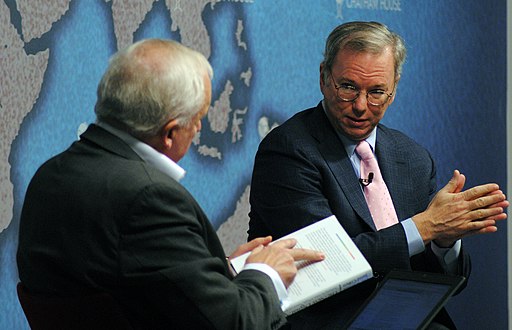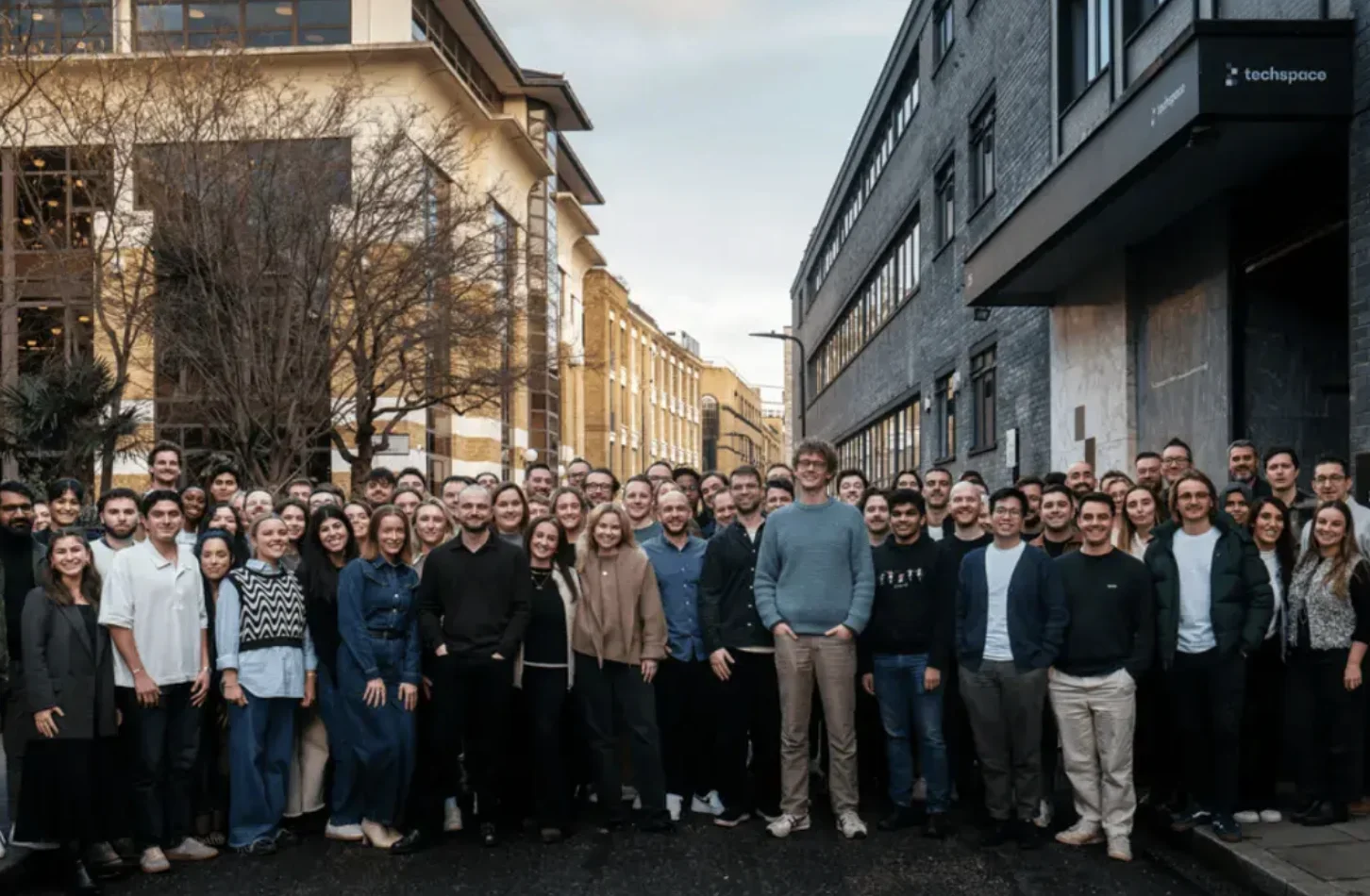Insider Brief
- Eric Schmidt, former Google CEO, is a key figure in the AI revolution, actively investing in transformative startups while advocating for AI’s potential and addressing its ethical implications.
- Through his family office, Hillspire, Schmidt has invested in 22 private AI firms since 2019, including Anthropic, SandboxAQ, and early-stage ventures like Inworld AI.
- Schmidt envisions AI automating skilled tasks, reshaping creativity, and replacing dangerous jobs, while emphasizing the need for careful oversight of this “non-human intelligence.”
- Image: Chatham House, CC BY 2.0, via Wikimedia Commons
Eric Schmidt, the billionaire and former CEO of Google, is a major force behind the artificial intelligence (AI) revolution, not only as an advocate but also as an active investor. Through his family office, Hillspire, Schmidt has quietly placed significant bets on AI startups, reflecting both his belief in the transformative power of the technology and his awareness of its potential risks.
What emerges from an analysis of these investments — along with some of his comments and insights — is an interesting blend of an investor who doesn’t turn a blind eye to the potential challenges and ethical implications of AI, but who is fully engaged in investing in companies that are bringing about this AI revolution.
What is Hillspire?
Hillspire is an integrated family office management company that serves the business and philanthropic activities of Eric and Wendy Schmidt and their family, supporting more than 700 employees worldwide. Hillspire provides services in legal, finance, accounting, facilities, real estate, human resources, and IT. Alongside its business ventures, the Office of Eric and Wendy Schmidt supports philanthropic initiatives aimed at fostering a healthy, resilient, and secure world. These include the Schmidt Family Foundation, which focuses on environmental restoration; Schmidt Ocean Institute, dedicated to advancing ocean exploration; Schmidt Sciences, which supports science and technology solutions to global challenges; and other initiatives such as 11th Hour Racing and Remain.
Substantial AI Investments
Hillspire’s investments in AI have been substantial. The family office has invested in 22 private AI firms since 2019, according to data shared with CNBC by Fintrx. The scale of Schmidt’s commitment to AI became even more apparent last year when Hillspire made 13 investments in AI startups, representing over 75% of Schmidt’s total startup investments for 2022.
While the exact amounts of these investments remain undisclosed, the funding rounds for the 22 AI startups total more than $5 billion, CNBC reports.
Schmidt’s portfolio includes both industry heavyweights and emerging players. Some of the industry’s biggest names, such as Anthropic, Holistic AI, and SandboxAQ highlight Schmidt’s alignment with globally prominent AI ventures. At the same time, his investments in smaller firms like Optiml, Altera and Inworld AI showcase his interest in nurturing early-stage innovation.
Schmidt’s most recent known bet, according to Forbes, is on Hooglee, a startup that uses AI to reshape video and social media. Hooglee’s mission, as stated on its website, is to “change the way people connect through the power of AI and video.”
Understanding How Schmidt Thinks About AI
These investments align with Schmidt’s broader role as an evangelist and critic of AI technology. Co-author of The Age of AI alongside Henry Kissinger and Daniel Huttenlocher, Schmidt has emerged as a leading voice in AI policy and ethics. He has frequently spoken about the immense opportunities AI presents, such as solving complex problems and advancing scientific discovery. Yet, he has also warned about its risks, including runaway algorithms and self-improving systems.
“The arrival of an intelligence that’s not human is a really big deal,” Schmidt said at the FII Priority Summit in Miami,
Schmidt said he believes that AI will soon automate highly skilled jobs, including parts of law and programming, and will be able to accomplish tasks once thought perhaps not impossible, but at least improbable.
“The way it will work is it’ll be basically text to action. You’ll have an idea, and you’ll say I want a ‘this’ and the system will show you the recipe or organize the events,” he said. The systems will be smart enough to be able to communicate, send emails, make phone calls and so forth.”
Schmidt has also addressed concerns about job displacement, predicting that the worst jobs will likely be automated first.
“Historically… automation tends to replace the most dangerous and poorest jobs,” he said.
However, he believes AI will eventually rival human creativity, even in areas like literature.
“I go to a lot of events where people say: ‘well, a computer will never be able to write something with the human experience and evocativeness that humans can write.’ That’s just false, these systems can actually read what a millions humans felt and produce something as good as the great humans can,” he said.
Schmidt is not alone in seeing the potential of AI as an investment theme. As reported in CNBC, recent UBS Global Family Office Report found that AI has become the leading focus for family offices worldwide. According to the survey, 78% of family offices plan to invest in AI over the next two to three years, reflecting widespread recognition of the sector’s growth potential.






